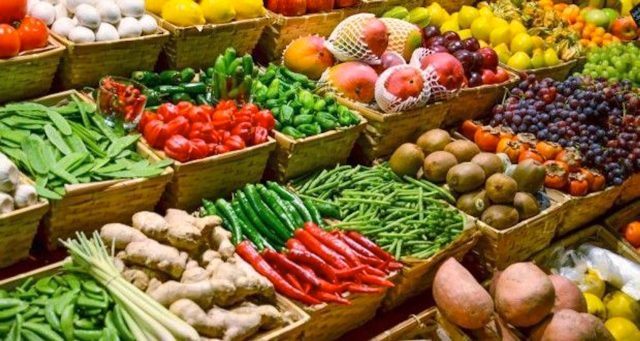We have enough food for Nigerians, agric minister insists
• Minister blames rising cost of food on inflation, COVID-19
Minister of Agriculture and Rural Development, Dr. Mohammad Abubakar, has blamed the rising cost of food and other items on inflation and the lingering effects of the COVID-19 pandemic.
The minister spoke, yesterday, at a media briefing series to highlight the achievements of the President Muhammadu Buhari administration, otherwise known as ‘Scorecard 2015-2023’.
He said inflation is not limited to Nigeria, describing it as a global trend occasioned by the effect of the COVID-19 pandemic.
According to Abubakar, the hike in the price of fertilizer and challenges facing producers of raw materials, due to the effect of the pandemic, impacted negatively the cost of food items.
Even as Nigerians groan under the burden of the high cost of food, especially rice, Abubakar tried to allay fears, noting that the country has enough to feed its citizens.
He said: “We have enough food to take care of Nigerians. We are producing food across the country and we will continue to do so to feed Nigerians, in line with our mandate, and expedite the transformation of rural communities.
“The fact that some categories of food are imported by Nigeria is not an indication that we have a food shortage. The high cost of food that we experience in the country is as a result of rising inflation, which is not peculiar to Nigeria, but is due to the COVID-19 pandemic that forced many sectors of economic production to be shut down for many months.
“As it is, today, many parts of the world, including our own country, are yet to fully recover from the negative effects of the pandemic, which has triggered inflation and high food cost across the world.”
The minister announced that to improve food stock in the country, the ministry is currently constructing 10 large-scale integrated rice mills, with 320 metric tons capacity per day, in nine states and in the Federal Capital Territory.
The states are: Jigawa, Kano, Adamawa, Niger, Kaduna, Gombe, Ekiti, Ogun and Bayelsa.
This is, in addition, to support given to farmers towards the production and distribution of breeder, foundation and certified rice seeds.
The minister further informed that the Presidential Fertilizer Initiative, launched in 2016, has increased the number of fertilizer plants from eight to 200 and raised production from 300,000 metric tons to seven million metric tons.
According to him, the ministry has improved the quantity of food, fish and animal production and has increased the capacity of food storage facilities in case of emergency.
He noted that the ministry is constructing two 2,000-metric-ton specialised warehouses for food storage at Federal Government’s silo complexes in Irrua, Edo State and Ilesha in Osun State.
While answering questions on herders’ attack on farmers, the minister said he was not certain herdsmen would intentionally attack farmers, stressing that ranching and grazing remain lasting solutions to the problem.


